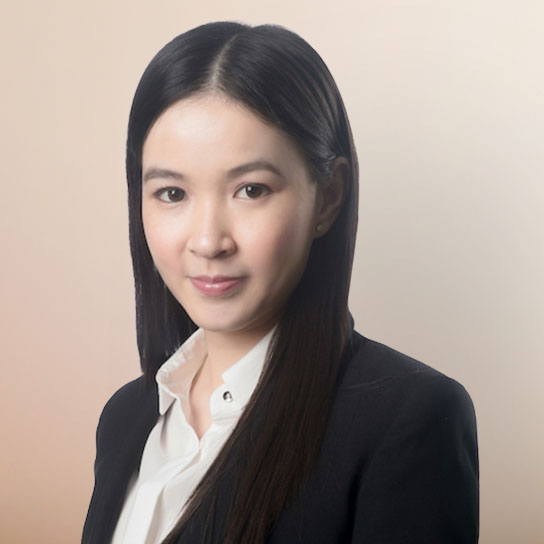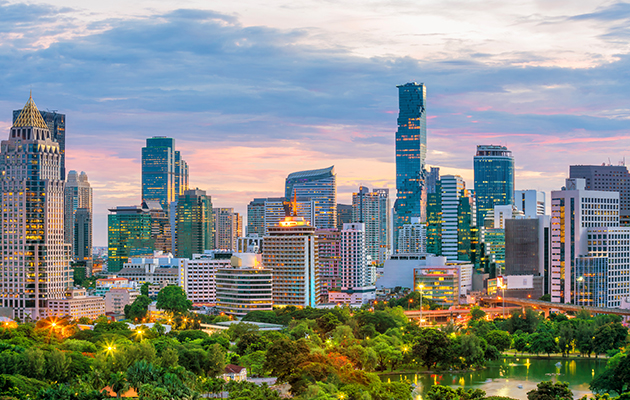Long-Term Residence Visa allows High Potential Foreigners to Stay in Thailand for 10 Years and Provides a Special Package for Tax and Non-Tax Benefits
On 2 June 2022, the Government Gazette published an Announcement of the Ministry of Interior regarding the approval to allow some foreigners to enter Thailand according to stimulus and investment measures to attract high potential foreigners to Thailand (“Announcement”). These stimulus and investment measures put in place by the Thai government seeks to attract high potential foreigners to Thailand by providing them with long-term visas, which will result in greater domestic spending. By issuing a Long-Term Residence Visa (“LTR Visa”), the Thai government believes that it will attract highly-skilled staff in various fields, thus benefiting the country’s economic development.
Who is eligible?
- Wealthy Individuals;
Wealthy individuals are required to have at least USD 1 million in assets and a personal income of at least USD 80,000 per year over the past two years. In addition, wealthy individuals must invest at least USD 500,000 in Thai government bonds, foreign direct investment or Thai property.
- Wealthy Pensioners;
Wealthy pensioners aged 50 years and over who have an annual pension or stable income. Said wealthy pensioners are required to have a personal income of not less than USD 40,000 per year and must invest at least USD 250,000 in Thai government bonds, foreign direct investment or Thai property; otherwise, they must have a personal income of at least USD 80,000 per year at the time of the application in case of no investment.
- Work-from-Thailand Professionals (Remote Workers)
Remote workers must have at least five years of work experience in fields relevant to their current employment over the past 10 years. In addition, remote workers are required to have a personal income of at least USD 80,000 per year over the past two years. In the case of remote workers have a personal income of less than USD 80,000 but not lower than USD 40,000 per year over the past two years, such remote workers shall possess additional qualification i.e. graduating a master’s degree or above, or owning intellectual property or receiving Series A funding (its official definition is not prescribed by law yet)
With regard to employers, such employers in foreign country must be a public company listed on a stock exchange or a private company in operation for at least three years with a combined revenue of at least USD 150 million over the last three years.
- Highly-skilled Professional in Targeted Industries.
Professionals are required to have a personal income of at least USD 80,000 per year over the past two years, except for professionals working for Thai government agencies. In the case of professionals who have a personal income of less than USD 80,000 but not lower than USD 40,000 per year over the past two years or before retirement, such professionals must have a master’s degree or above in science and technology or special expertise relevant to the job assignment in Thailand.
In addition, professionals under the above paragraph must have at least five years of work experience in the targeted industries, except for applicants with a PhD or above in relevant fields of the targeted industries or applicants working for Thai government agencies.
The targeted industries, i.e. modern vehicles, smart electronics, quality travel, agriculture and biotechnology, high value-added food processing, robots, aviation, fuel, biochemistry, digital healthcare, national defence, circular economy, human resource development and research, and development for targeted industries and other industries in line with the 20-year national strategy.
Moreover, the above eligible persons in all four groups are required to have health insurance with at least USD 50,000 coverage, social security benefits insuring treatment in Thailand or at least USD 100,000 deposited in a bank account.
What are the benefits?
There are both tax benefits and non-tax benefits, as follows:
-
- Tax Benefits
- Wealthy individuals, wealthy pensioners and remote workers shall be exempted from income tax exemption for overseas income, including imported income in the same tax year.
- Highly-skilled professionals shall have taxable personal income from income in Thailand equivalent to the rate of income tax earned on the employment of workers in the Eastern Economic Corridor (EEC), i.e. 17% personal income tax for highly-skilled professionals.
- Non-Tax Benefits
- Spouse and children under 20 years old of LTR visa holders can also apply for the LTR visa. However, there is a maximum of four dependents in total per one LTR visa holder;
- 10-year renewable visa;
- LTR visa holder can work in Thailand both for an overseas employer and an employer in Thailand;
- Exemption from the four Thais to one foreigner employment requirement ratio for applying for a work permit in Thailand; and
- 90-day report shall be extended to a yearly report and exemption of re-entry permit.
How much is the government fee?
The government fee for applying for the LTR visa is Baht 50,000.When does the application process commence?
The application process for the LTR visa will commence on 1 September 2022. Please note that other regulations on specific requirement on this matter have not yet been issued as of 22 June 2022.In summary, the new LTR visa is a stimulus and investment measure which allows eligible persons to live long-term in Thailand easier and less bureaucratic. The LTR visa provides an interesting package for both tax benefits and non-tax benefits to the eligible person. In addition, spouses and children under 20 years old of LTR visa holders can apply for an LTR visa and stay in Thailand with the eligible persons as a family unit for 10 years. The new LTR visa will be open for applications as of 1 September 2022.
- Tax Benefits
This is intended merely to provide a regulatory overview and not to be comprehensive, nor to provide legal advice. Should you have any questions on this or on any other areas of law, please do not hesitate to contact:
Nuttaros Tangprasitti
Partner
Siriwan Nopareporn
Attorney-at-Law








Nuttaros Tangprasitti specialises in corporate and commercial law. She regularly assists both international and domestic corporate clients (limited liability companies and partnerships, stock corporation in several industries) on the relevant laws of Thailand, which includes foreign direct investment, legal due diligence, M&A and cross-border M&A, joint venture, compliance, banking and finance. In addition to supporting clients on the above and a multitude of different legal formalities, she also has expertise in advising on various investment promotion policies of the Board of Investment (BOI), as well as compliance with foreign business, other laws on salient points for shareholders and joint venture agreements, which includes laws on immigration and foreign work under Thai law. Nuttaros speaks at many seminars and takes an active role in educating the clients on issues relevant to their businesses and her practice areas. She also writes various articles and newsletters on cutting-edge topics in several legal areas, which are widely distributed to existing and potential clients. Nuttaros aims to ensure the lawyers on her team are constantly developing and upgrading their skills, to ensure they meet or exceed the high professional standards of Nishimura & Asahi. She is committed to ensuring that both she and our firm deliver top-quality services to our clients and strong internal support for our colleagues. She recently began drafting a manual on several aspects of Thai law, as part of an “Investment promotion scheme,” and also wrote several newsletters on corporate law, and banking and finance laws. She also recently authored an article on the impact of Tax Reduction for Land and Buildings, which received excellent feedback from our clients, particularly those who are land and building owners. Nuttaros is committed to building a strong and progressive corporate and commercial practice, which also incorporates tax law, by adapting to new ideas in the legal industry.